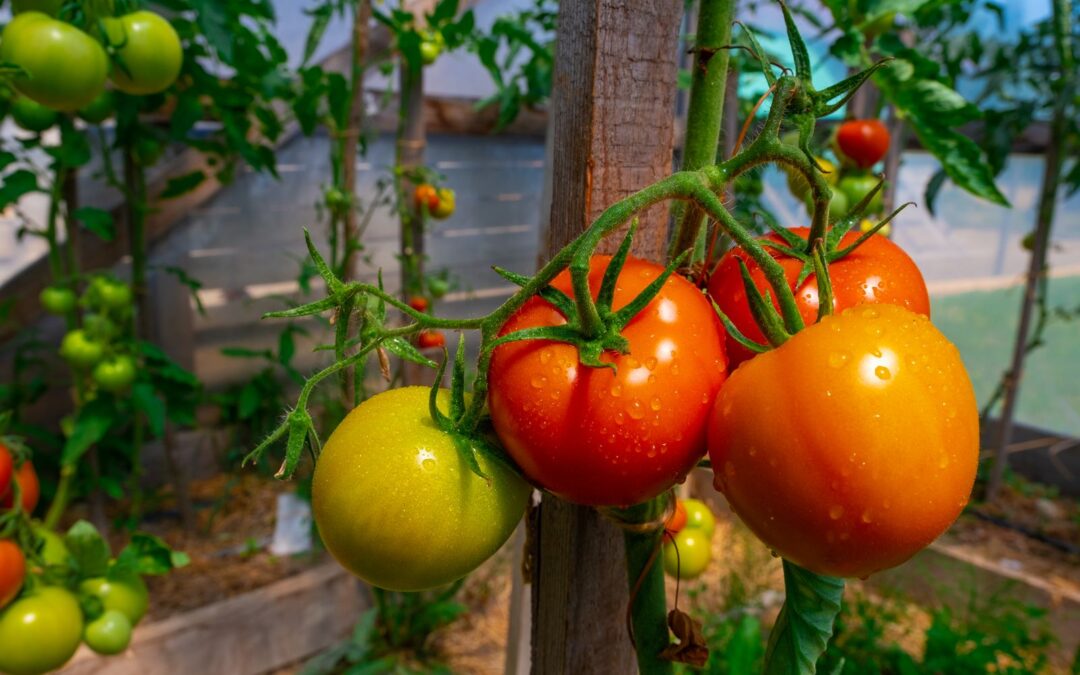

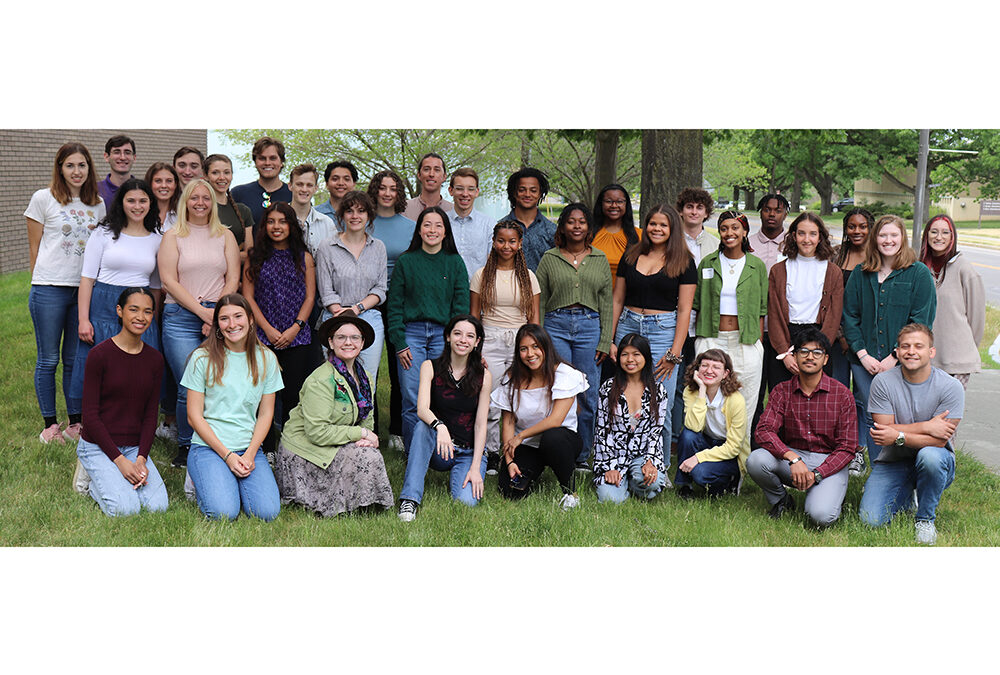
BTI Welcomes 2023 Undergraduate Student Researchers
On June 5, Boyce Thompson Institute welcomed 39 undergraduate students from colleges across the country to experience the life of a researcher for 10 weeks. Now in its 23rd year, BTI’s NSF funded Plant Genome Research Program (PGRP) and USDA funded Innovations in...
Interstellar: Interview with Dr. Greg Martin, newly elected member of the National Academy of Sciences
Interview of Dr. Martin conducted by Haesong Kim, PhD student at Pohang University of Science and Technology, Korea.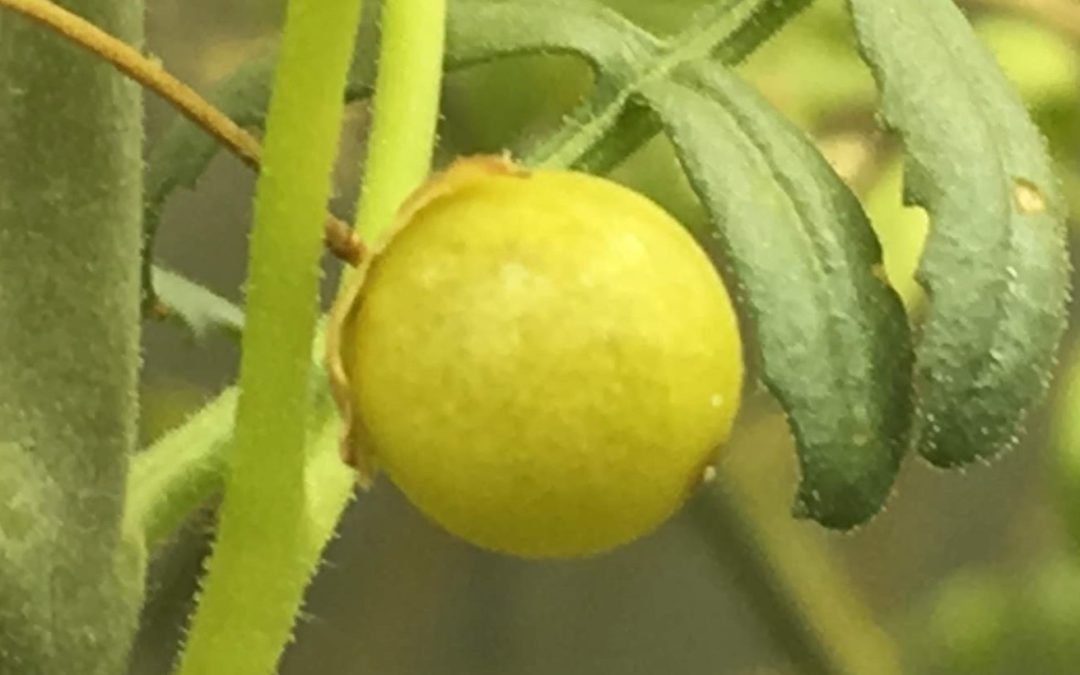
Wild tomato genome will benefit domesticated cousins
Wild relatives of crops are becoming increasingly valuable to plant researchers and breeders. During the process of domestication, crops tend to lose many genes, but wild relatives often retain genes that could be useful – such as genes that confer resistance to...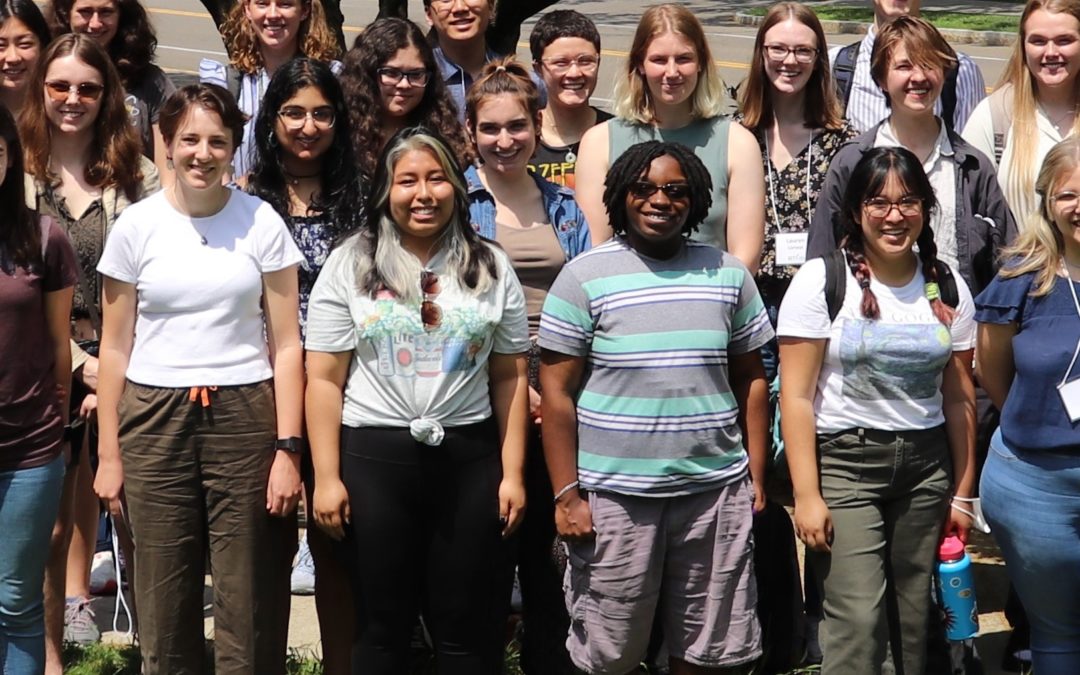
BTI Welcomes Summer Student Interns
On May 31, Boyce Thompson Institute welcomed 41 of the country’s brightest undergraduate students from universities around the country to experience the life of a researcher for 10 weeks. Ten more research interns from local area high schools will join the Institute...
BTI’s Greg Martin Elected to National Academy of Sciences
Greg Martin, Boyce Schulze Downey Professor at the Boyce Thompson Institute and Professor in the School of Integrative Plant Science (SIPS) at Cornell University, has been elected to the National Academy of Sciences. Martin is one of 150 new members announced on May...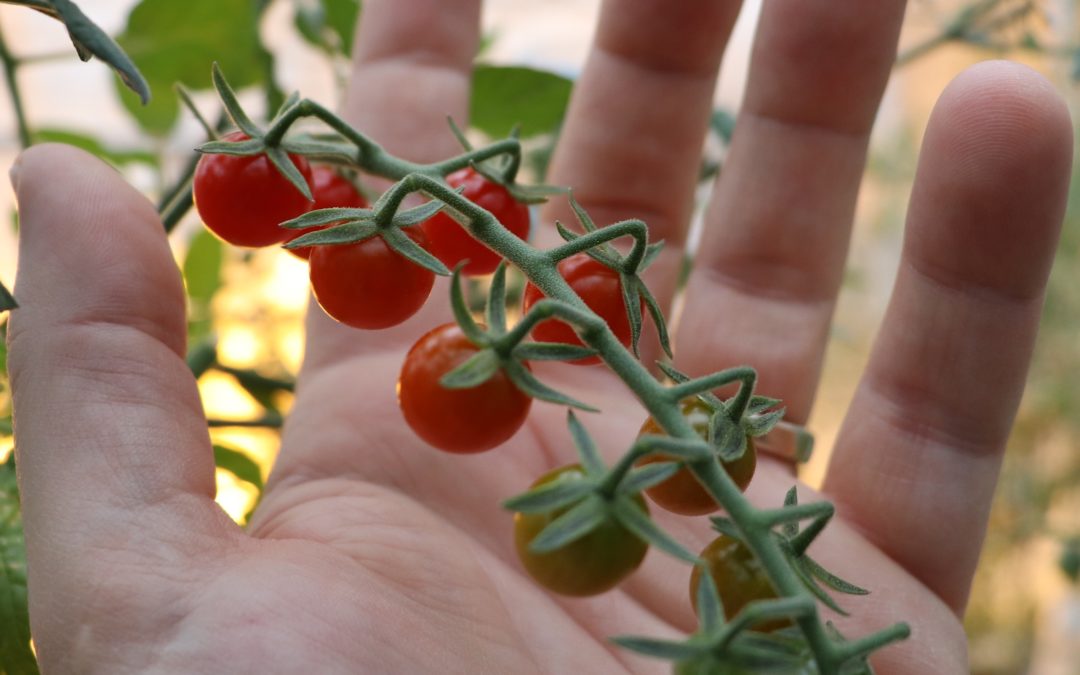
Tomato’s Wild Ancestor Is a Genomic Reservoir for Plant Breeders
Thousands of years ago, people in the region now known as South America began domesticating Solanum pimpinellifolium, a weedy plant with small, intensely flavored fruit. Over time, the plant evolved into S. lycopersicum – the modern cultivated tomato. Although today’s...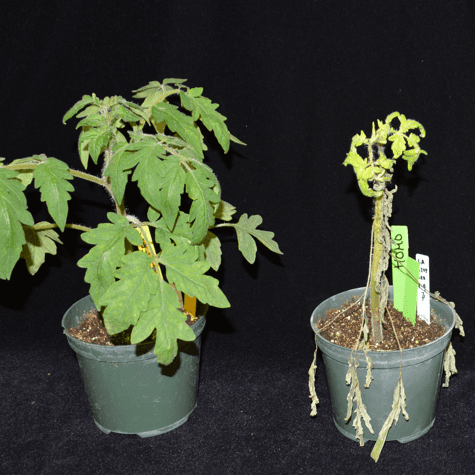
Newly Identified Gene Grants Tomatoes Resistance to Bacterial Speck Disease
Bacterial speck disease, which reduces both fruit yield and quality, has been a growing problem in tomatoes over the last five years. Because the culpable bacterium, Pseudomonas syringae, prefers a cool and wet climate, crops in places such as New York State have been...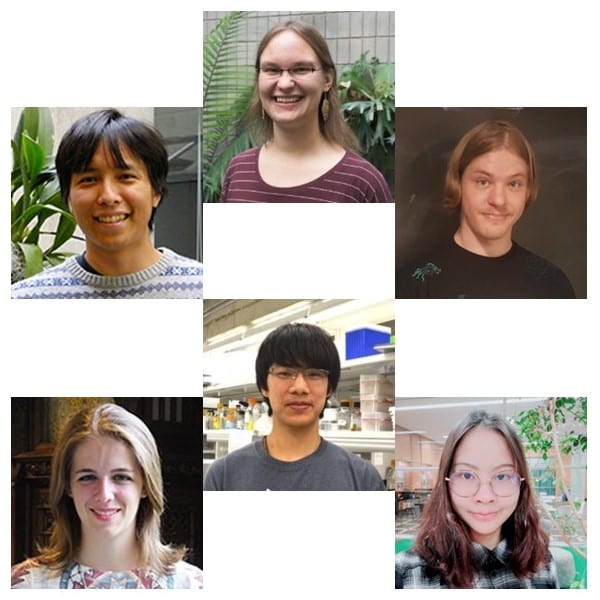
Congratulations Spring 2020 Graduates!
We are pleased to announce that six BTI researchers received their degrees from Cornell University this spring. Congratulations to our newest alumni: Jason Hoki, Schroeder lab, PhD in Chemistry & Chemical Biology, Dissertation title: “Development of...
Cluster Hire Yields Three New Faculty Members
Boyce Thompson Institute is pleased to announce the hiring of three faculty members as part of its new and innovative “cluster hire” approach. Out of 113 applicants, the three people who will join BTI over the next year are: Magdalena (Magda) Julkowska, a postdoctoral...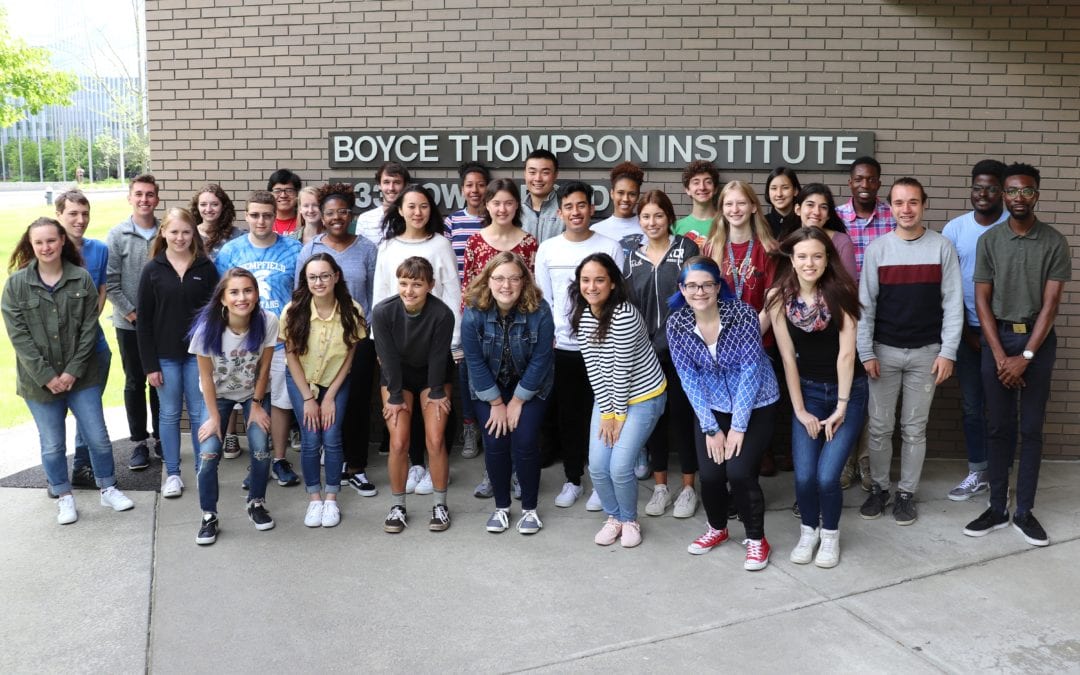
BTI Welcomes Summer Student Interns
On June 3, Boyce Thompson Institute welcomed 35 of the country’s brightest undergraduate students from universities around the country to experience the life of a researcher for 10 weeks. Eight more interns from area high schools will join the Institute for seven...
Congratulations to BTI’s PhD Graduates!
We are pleased to announce that seven Boyce Thompson Institute researchers received their PhD degrees during the Cornell University commencement ceremony on May 26. Congratulations to our newest alumni: Mariko Alexander, Heck lab, “Searching for the missing...
Inaugural BTI Alumni Recognition Awards
It is with great enthusiasm and pride that Boyce Thompson Institute (BTI) will recognize the first recipients of BTI’s Alumni Recognition Awards during the 2019 PGS Career Symposium on April 26, 2019. Several highly qualified individuals were nominated for the...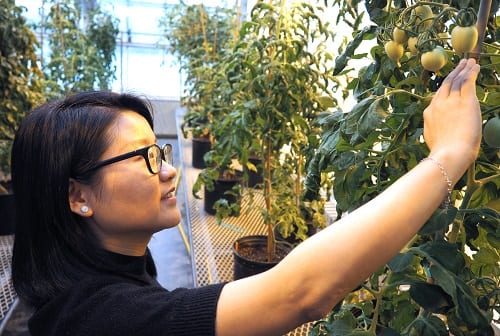
New CRISPR database to catalyze collaborations
Recently developed gene editing tools like CRISPR/Cas enable scientists to figure out the functions of myriad plant genes. While these studies could eventually lead to the creation of crops with improved traits like increased disease resistance or higher yield,...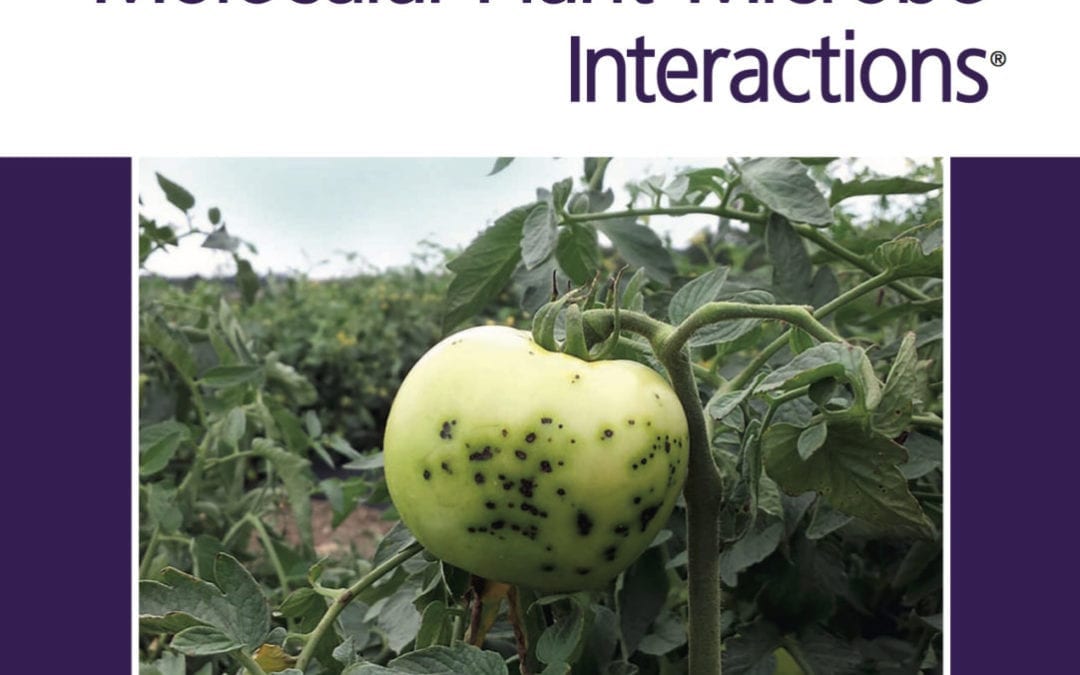
Hot tomatoes! MPMI Cover features BTI research
This month, the cover of Molecular Plant-Microbe Interactions features a publication by Simon Schwizer from the Martin Lab at BTI that furthers our understanding of how tomatoes are able to resist infection by Pseudomonas syringae, the causal agent of bacterial speck, a common disease in upstate NY.
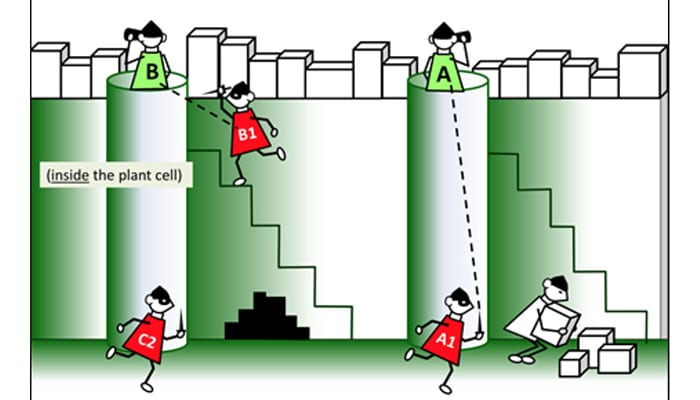
A New Method for Studying Plant-Germ Warfare
Researchers in the Martin lab develop a new technique to study the arms race between plants and the bacteria that infect them.
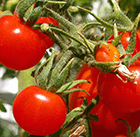
Collaboration to Identify New Sources of Disease Resistance in Tomato
Professor Greg Martin and colleagues received an NSF grant to pursue research into resistance against bacterial speck disease in tomatoes.
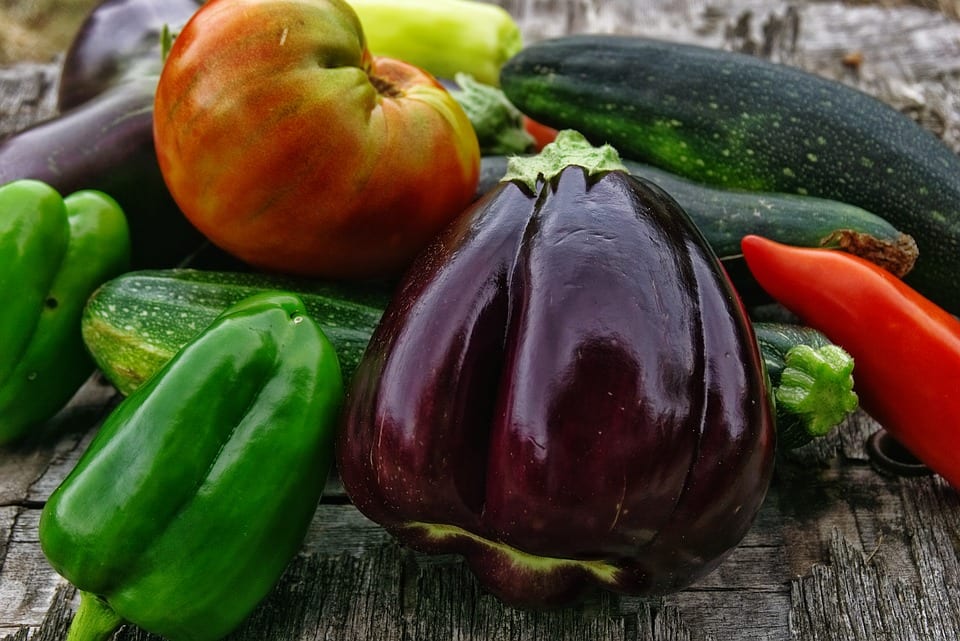
SolGenomics Meeting Has Newest Advances in Nightshades
Many BTI researchers will present their latest research at the 13th annual SolGenomics Conference, Sept. 12-16 in Davis, California.
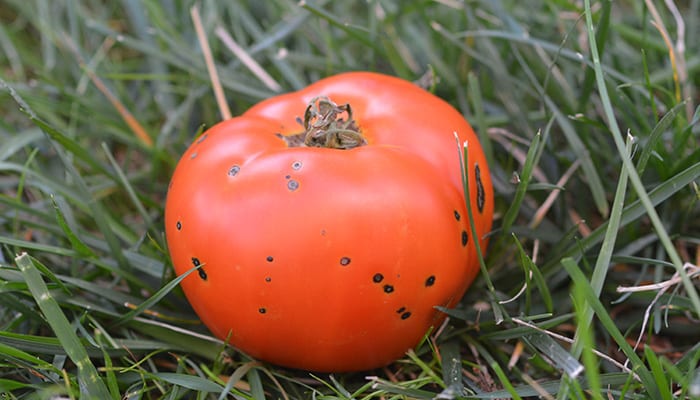
New System in Tomato’s Defense against Bacterial Speck Disease
Researchers at BTI and Virginia Tech find a new bacterial detector in tomatoes that could help other crop plants to be more disease resistant.

BTI Faculty Honor Former Advisor, Steve Tanksley
Tanksley made invaluable contributions to plant breeding and genetics, laying the foundation for targeted crop improvements to increase food security.
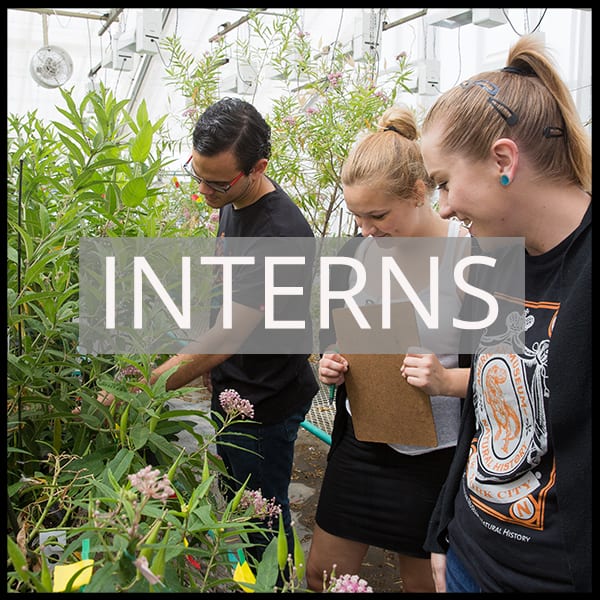
BTI Intern Picks Up Awards on His Way to Berkeley
Patel is about to graduate from Cornell–and the Martin lab–to return to his native California to continue his career in plant science.
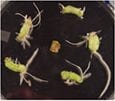
High-throughput CRISPR Vector Construction Using Tomato Hairy Roots
In a JOVE publication, postdoctoral researcher Thomas Jacobs uses tomato hairy roots to demonstrate how multiple CRISPR vectors can be constructed in parallel in a single cloning reaction.

The “Speck”-ter Haunting New York Tomato Fields
The BTI tomato field experienced a damaging outbreak of bacterial speck disease this summer, but BTI’s Greg Martin has identified genetic regions in a wild tomato species that may make future varieties immune to these devastating bacterial strains.
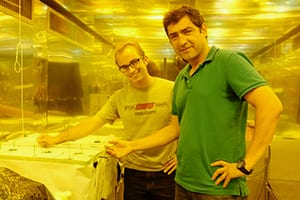
The Perks of Being a Mentor
Summer internships at BTI let students try on the life of a scientist for a few months, while attending a variety of talks, trainings and social events. But what’s in it for the mentors, who painstakingly train them?
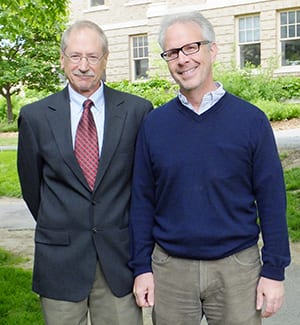
Scientists Find New Tool for Pathogen to Pillage Plants
“The more we understand the molecular mechanisms involved in the infection process and in plant resistance, the more effective we’re going to be in breeding resistant crops,” said Professor Greg Martin.

BTI Hosts Flash Science! Speaking Competition
BTI Professor Emeritus Robert Kohut initiates competition at BTI to give early-career scientists an opportunity to communicate with the general public and practice their “elevator speech.”

New Website Is Portal for Nicotiana benthamiana Experimental Resources
This Nicotiana benthamiana web site shares papers, results, tools, protocols, and other materials from researchers using NB as a study plant.
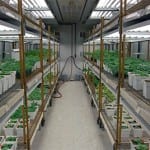
A Wild Relative of Tobacco Offers Insight into Molecular Plant Biology at BTI
The genome of an experimentally important relative of tobacco has been sequenced by US and Canadian researchers.
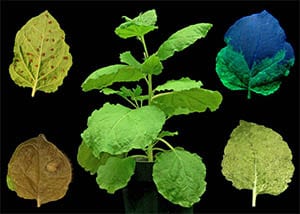
Draft Genome Sequence for Nicotiana benthamiana Released in 2012
Scientists at the Boyce Thompson Institute for Plant Research (BTI) released a draft sequence of the Nicotiana benthamiana genome which is accessible through the SGN BLAST tool and can be downloaded from an ftp site (see: http://solgenomics.net/). The project was...Assay for PAMP-Triggered Immunity in Plants
Research associate Suma Chakravarthy from Greg Martin’s lab, shows the procedure Assay for Pathogen-Associated Molecular Pattern (PAMP)-Triggered Immunity (PTI) in Plants in a JOVE publication.
VIGS in Nicotiana benthamiana and Tomato
Graduate student André Velásquez from Greg Martin’s lab shows how to do Virus-induced Gene Silencing (VIGS) in Nicotiana benthamiana and Tomato in a JOVE publication.
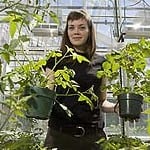
Tracy Rosebrock Interviewed by Nature Magazine
Tracy Rosebrock, a former BTI graduate student in the laboratory of Greg Martin, discusses how some bacteria suppress plant immunity.
